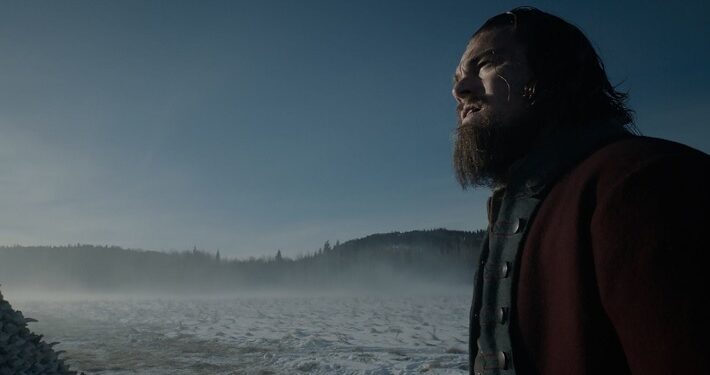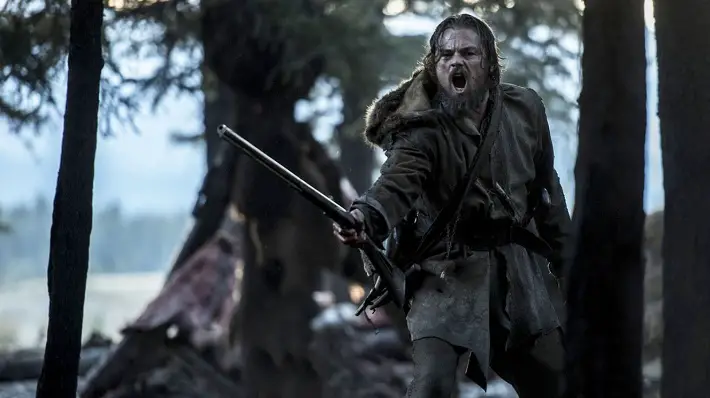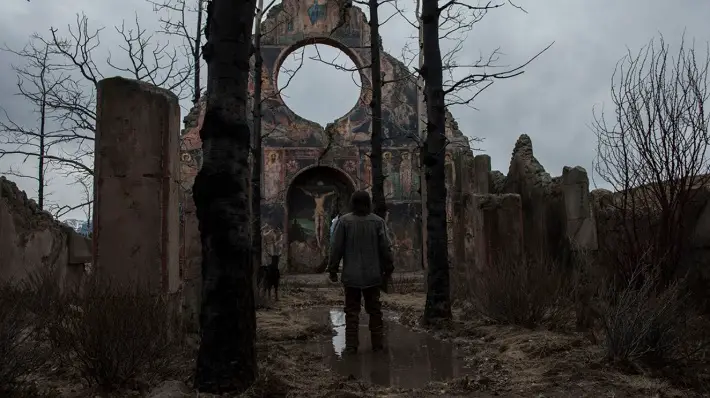The Revenant (2015) – Film Review

Director: Alejandro González Iñárritu
Cast: Leonardo DiCaprio, Tom Hardy, Domhnall Gleeson
Certificate: 15
By Jen Grimble
The 21st century has produced a series of directors who have collectively altered the landscape of modern cinema. Consider the likes of Christopher Nolan and Quentin Tarantino. Directors who have achieved noticeable success while manipulating the boundaries of story-telling. Inception and Kill Bill Vol 1 are examples of how directors exploit the concept of space and reality. Alejandro González Iñárritu finds himself alongside these directorial A-listers. There are already six impressive feature length films on his résumé.
Babel and Biutiful gave González Iñárritu a name and a fan base. But it is Birdman that made him a legend. The film was winner of Best Motion Picture at the 2015 Oscars. It is a fast-paced, seemingly uncut black comedy with playful sci-fi interjections. Inventive, loud and aggressive in its portrayal of anxiety. Sensitive in its expression of empathy. It swept up a multitude of international awards and set the bar high for future releases.
González Iñárritu’s latest film, The Revenant, loosely based on Michael Punke’s novel of the same name, seeks to advance the principles of story-telling. It could not be further removed from Birdman. The action is slow, considered. Where Birdman used dialogue to carry scenes, The Revenant relies almost entirely on imagery to lead the audience into the depths of the plot. Speech is a secondary component. Drive (Nicolas Winding Refn) did this back in 2011, making conversation irrelevant within the context of the story, while simultaneously reflecting the brooding aloofness of its main character. The Revenant does the same thing.
“Imagery makes it spellbinding”
The plot treads a dark route; there are few laughs and even fewer breaks in the bleakness. We are led into the film with glossy, melancholic shots of Hugh Glass (Leonardo DiCaprio) in a reflective monologue to his family. Glass is a frontiersman in 1820’s Midwest America. His gang spend their days hunting furs and fighting any rivals that attempt to steal their wares.
After surviving a brutal battle with an opposing Native American tribe, Glass faces further torture when he is mauled by a bear. His brothers-in-arms, having already lost so much, leave Glass for dead; unable to escort his wasting body across the treacherous landscape they must now traverse. Alone and at the edge of life, Glass has just one objective, to survive long enough to seek revenge on those who have wronged him.
The film once again takes on an uncut shooting style, making every scene appear uninterrupted. Cinematographer Emmanuel Lubezki (Gravity) works his magic, using the landscape of the American West to full advantage; picture snow-capped mountains and rolling streams in wide silhouettes and still, idle pans. It is the imagery that makes The Revenant so utterly spell-binding.
“Poignantly beautiful and darkly imaginative”
DiCaprio enthrals as Glass. His ability to express anguish and unfaltering determination while strapped to a wooden board, unable to talk, places him amongst the greatest actors in cinematic history. Likewise, Tom Hardy is his usual suburb self, taking on any character with a strong casualness that makes him effortlessly adaptable. In this he captivates as the malevolent John Fitzgerald, Glass’s nemesis. Yet full admiration lies with the director and his flawless cinematographer, whose use of light, reflection and panorama is quite remarkable.
Palpable, gut-wrenching, and entirely unapologetic, The Revenant is an action film in its purest state; removing language and using scenery to break up action sequences. This movie is unhurried, void of the busy, temperamental stylings of Birdman, before clawing its way to a penetrating finale. It is poignantly beautiful and darkly imaginative, exploring the limits of betrayal and the enduring nature of love. With this Alejandro González Iñárritu confirms his place in the directorial hall-of-fame; he is a power-house of modern cinema, a contemporary master with a growing cinematic legacy.











